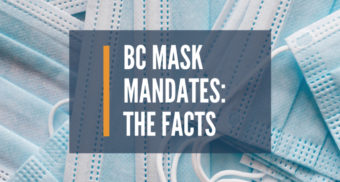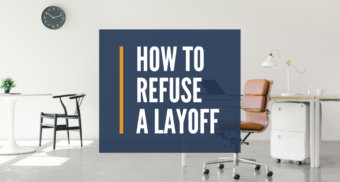What are an employee’s rights during a coronavirus outbreak? – Global News

Some Canadian companies are telling employees to place themselves under self-quarantine following their return from trips abroad overseas trips to prevent the spread of coronavirus (or COVID-19).
You may be asking “what are my employment rights during a coronavirus outbreak?”
Lior Samfiru, employment lawyer and founding partner at Samfiru Tumarkin LLP, joined Global News reporter Meghan Collie to answer that question. Find out what your employment rights are if your employer asks you to self-quarantine.
Read the full article on Global News.
What are my employment rights during a coronavirus outbreak?
“Employees have a right to a safe and healthy workplace,” Samfiru told Global News.
He said that, in Ontario, employees are also “protected against improper discrimination based on various grounds including disability (which includes illness and perception of disability/illness), ethnic origin and place of origin.”
According to a recent statement by the Ontario Human Rights Commission (OHRC), the “discriminatory action against any persons or communities because of an association with the Wuhan novel coronavirus… is prohibited by the Ontario Human Rights Code.”
Samfiru said the statement also “encourages people to take precautions based on the most current advice from public health officials. Reactions based on stereotypes must not replace responsible actions based on evidence.”
Can my employer ask me to stay at home during a coronavirus outbreak?
Your employer can ask you to remain home from work if you have the following symptoms:
- high fever;
- coughing; or
- difficulty breathing.
You may be asked to self-quarantine if your recent travels took you to an area that has been exposed to coronavirus, or you have been in direct contact with an individual carrying the virus.
Samfiru told Global News that employers must avoid inappropriate discrimination when asking employees to stay at home. Discriminatory categories include disability, place of origin and ethnicity.
Fear or stereotypes should not be relied upon to make a decision about who should be allowed to work. Employers should instead resort to objective fact and information when making the call. Companies should refer to public health authorities for guidance and best practices concerning the impact of coronavirus.
“Employers should make decisions based on actual risk, not misplaced concern,” said Samfiru.
Learn about your ability to obtain employment insurance benefits during a coronavirus quarantine.
Coronavirus and Severance Pay
Coronavirus may significantly impact some businesses across Canada. Some employers may choose to lay off employees in either small or large numbers (i.e. mass layoffs). Companies may find themselves forced to close office or store locations.
In the event that an employee is let go or fired from their job as a consequence of the coronavirus pandemic, their dismissal will likely be considered a termination without cause. That employee will still be owed full severance pay under common law.
Various factors, including age, position, and length of employment are considered in order to determine how much severance pay you are owed.




